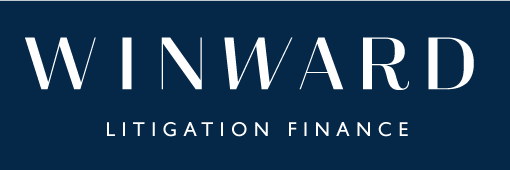The realities of a Winward investment
It is in the interests of Winward to fund a meritorious matter as quickly as it can. It is equally as important speedily to turn away a matter that it will not fund. Effective communication and due diligence is key. Winward does not wish to boast that it only funds 1 matter out of every 10 that it sees. It is keen to educate its market such that the strike rate is considerably better than 10%.
A litigation case becomes an investment upon a funding agreement being executed, and so it needs to immediately be seen as an attractive investment. Sadly, a meritorious case does not always translate into a fundable case. By the same token, a case that is a lawyer’s dream, because of its intricacy and Supreme Court potential, may not be a funder’s dream. Winward believes that there are 5 main characteristics for a good claim to be pursued:
-
It is a given that the piece of litigation must have legal merit and that any judgment is readily and easily enforceable. This must be obvious from the papers. Of course, enforcement funding is also a type of funding in and of itself. In this case, a reasonable path to enforcement should be obvious from the papers.
-
But merit cannot trump properly and independently quantifying the case. What is the value of the litigation? It is this valuation that is often lacking from case presentations. This is often for good reason – lawyers have been willing to put together a legal opinion, but the funds have not been available for a valuation of the opportunity. A funder needs to grapple with this reality.
-
The funder must be certain that the case’s value allows for comprehensive representation through to trial. A funder often will surprise a lawyer by suggesting to increase budget, rather than decrease, and that is because a case cannot be funded “on the cheap” or grind to a halt halfway through. Winward requires the case to be properly budgeted and managed through to trial. Since there appears to be an unfortunate case theorem whereby over time a case’s valuation goes down, and a case’s budget goes up, it is essential that there is sufficient headroom in any case.
-
The lawyer needs to be willing to share the risk. This helps achieve an overall alignment of interests. The triangular relationship between client, lawyer and funder is a delicate one, but a lawyer’s commitment to invest as well – via some kind of discounted fee arrangement – speaks volumes about a firm’s commercial approach, as does a firm’s unwillingness to do so. Winward wishes to incentivise firms to do their best for their clients and to share in the rewards and to use innovative structures to achieve that.
-
The team needs to gel. Everyone knows that a piece of litigation is not for the faint hearted and there are invariably many bumps along the road. It is essential that the team – client, lawyer and funder – see eye to eye on all issues and that there is sufficient respect and transparency from the start. The funder places a high level of trust on the claimant, and this risk needs to be considered. Everyone needs to be commercial. Often for this reason it is preferable to involve Winward at the beginning of a case as it is always challenging to jump into a matter that has been going for years and perhaps needs a change of direction. Many funders profess to be as meek as lambs but the reality is that control of the purse strings does bring with it a degree of control, however well drafted a funding agreement may be. Winward does not wish to destabilise its investment. But it does need to be involved and add value.
Timeline
A constant complaint of users of litigation funding is that the process of seeking funding can be time-consuming and often unsatisfactory. Some funders appear to display a level of arrogance in how they conduct the exercise but it does need to be remembered that the commitments that are being made are very significant. Good management demands effective communication, managed expectations and timely action. Winward will look to complete investments within weeks, not months, recognising that often very senior individuals from law firms and companies become involved as the investment process grinds on.


